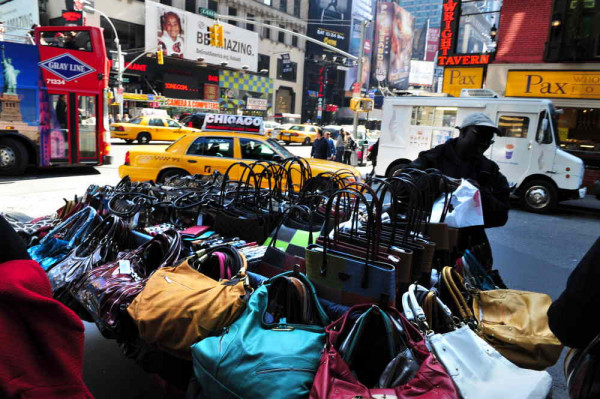
Richemont, the parent firm of watchmakers such as Cartier, Van Cleef & Arpels, Baume & Mercier, and Vacheron Constantin, is in the news for “apparently destroying its costly, unsold timepieces.” The Swiss luxury group’s 2018 financial report sheds light on its methods, such as “inventory buy-backs” and the disassembly of its costly watches, in an effort to “preserve their brand value,” at least in part from the tarnishment that comes with the grey market.
Combating the Grey Market
For years, a thriving parallel market has existed across the world, where genuine designer goods, among other things, have been offered for a fraction of their regular retail price. This unauthorized commerce, known as the grey market, is dominated by real branded products purchased from one market and then imported and marketed in another without the permission of the trademark owner. Unsurprisingly, the often-perfectly legal trading in “grey market items” is frequently cited by luxury businesses as a particularly challenging aspect of preserving exclusivity.
As a result, a slew of high-end and luxury brands have worked hard to reduce illicit distribution of their products. Chanel, for example, stated in May 2016 that its efforts to combat the grey market – which included harmonizing pricing globally to discourage price arbitrage – had been effective. They effectively reduced its pricing disparities across the United States, Europe, and Asia last year to prevent traffickers buying items in one region to resell in the grey market
On the other hand, there have been rumors that Louis Vuitton deals with the problem by destroying unsold bags. The internet is filled with tales claiming that the Paris-based business burns its excess leather products in order to avoid selling their well-known bags at a discount and risk damaging its reputation as a premium leader.
Reducing Drawback
However, the possible destruction of items by luxury firms – whether it be Louis Vuitton or Richemont’s watchmakers, provided industry rumors are true – might have another side to it. Brands that import goods into the United States stand to gain from the “drawback,” or the return of some tariffs, internal and revenue taxes, and certain fees paid upon the importation of items into the United States, for example, from France, by discarding unneeded merchandise.
“If imported merchandise is unused and exported or destroyed under Customs supervision, 99 percent of the duties, taxes, or fees paid on the merchandise by reason of importation may be recovered as drawback,” according to the US Customs and Border Protection program (and 19 USC 1313, the section of the US Code that deals with “drawback and refunds”).
While a spokesman for Richemont declined to comment, and LVMH did not respond to a request for comment on whether their brands use drawback practices, LinkedIn profiles for a number of Louis Vuitton employees, including “logistics supervisors” – whose responsibilities include “Perform[ing] reporting and follow-up activities related to duty drawback for both product destruction and product export” – lend some support to the theory that luxury goods brands are are indeed destroying some of their most desired goods.
Given that the average duty rate for importing a leather handbag is 16 percent, but can reach as high as 60 percent depending on the types of textiles used, and the average duty rate for luxury watches is 11 percent but can reach as high as 50 percent, brands that can show that imported products were exported or destroyed according to the set timetable may be able to claim significant refunds for unsold products.
In Italy (and many other countries), for example, companies who destroy unsold items can claim tax credits as a consequence. “At the end of the year, staff collect unsold garments into hundreds of boxes headed for a special facility, where they are incinerated,” the Wall Street Journal said in relation to Italian menswear company Stefano Ricci. According to Ricci the firms contracted to burn the garments and provide video proof to show that unsold merchandise has been destroyed.
Related News: Under Landmark French Law Unsold Goods Will No Longer Be Thrown Away
TechWaste Recycling directly services all of Southern California and provides pickup services to its facilities from nationwide locations. Visit TechWaste Recycling’s website at www.techwasterecycling.com to schedule a pickup that works for your convenience and schedule.


































